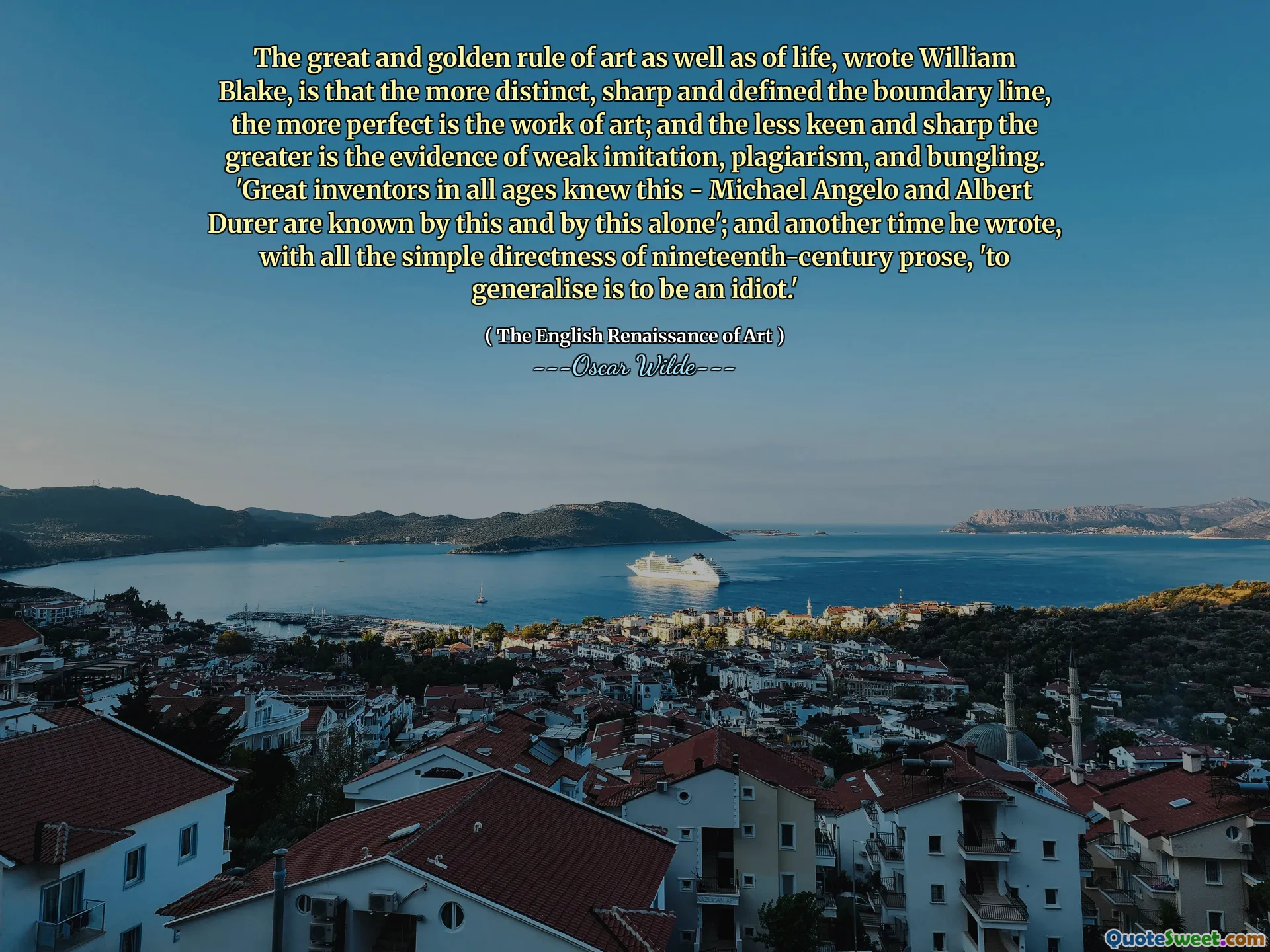
The great and golden rule of art as well as of life, wrote William Blake, is that the more distinct, sharp and defined the boundary line, the more perfect is the work of art; and the less keen and sharp the greater is the evidence of weak imitation, plagiarism, and bungling. 'Great inventors in all ages knew this - Michael Angelo and Albert Durer are known by this and by this alone'; and another time he wrote, with all the simple directness of nineteenth-century prose, 'to generalise is to be an idiot.'
This quote emphasizes the importance of clarity and precision in both art and life. William Blake’s insight reveals that the hallmark of true mastery is the ability to create clear and sharply defined boundaries, which serve as the foundation for authentic and original work. The analogy extends beyond art into broader life principles, suggesting that vague, indistinct, or overly generalized approaches often indicate superficiality or lack of depth. The reference to iconic figures like Michelangelo and Albert Durer highlights that their greatness was partly rooted in their ability to focus on distinct, well-defined forms — a hallmark of their craftsmanship and originality. The warning against generalizing, as voiced with the straightforwardness of 19th-century prose, underscores the value of specificity and detail, warning against the pitfalls of superficial thinking or pretense of knowledge. Such positioning promotes the idea that mastery, whether in creative pursuits or intellectual endeavors, requires discernible boundaries that differentiate genuine work from compromised imitation. Blaking’s perspective champions the virtues of clarity, discipline, and deliberate focus, asserting that true excellence is marked by its well-defined nature. This advice remains strikingly relevant in contemporary discussions about originality, artistic integrity, and critical thinking, reminding us that depth and clarity are often the best signatures of genuine talent and understanding.






